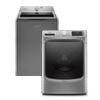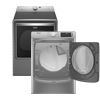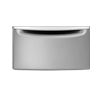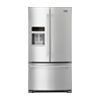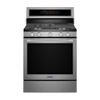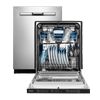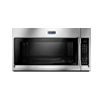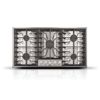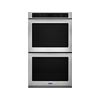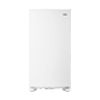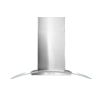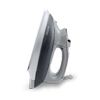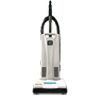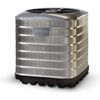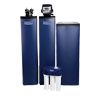Oversudsing or Residue on Dishes
Lots of Suds inside of Maytag Dishwasher
Was too much, or the wrong detergent used?
Do not use hand soap or laundry detergents. Use automatic dishwasher detergents only.
Measure detergent precisely as soft water requires less detergent (if using powder or gel detergent).
Here are some additional tips for using the correct amount of detergent:
- Use fresh dishwasher detergents only.
- Never use less than one tablespoon per load.
- Heavy soil and/or hard water generally require extra detergent.
- Store detergent in a cool, dry area.
- If using detergent pacs or pods, use only one pac per load. Follow the manufacturer's instructions for pac use.
Have you cleaned your dishwasher with affresh®®?
Clean your dishwasher once a month with affresh® cleaner. This will keep the tub and filters fresh and free of residue.
Was rinse aid spilled inside the tub?
Spilled rinse aid can cause foam and lead to overflowing. Wipe up any spilled rinse aid with a damp cloth. To avoid rinse aid leaks, make sure the cap is securely attached.

To get rid of the suds, follow these instructions:
- Stop the dishwasher immediately and Cancel the wash cycle.
- Clean up any overflow. Do not let water sit and seep into cabinets or floorboards.
- Remove dishes from the dishwasher.
- Add ¼ c of vegetable or other cooking oil to the bottom of the dishwasher.
- Run a Quick Cycle with no detergent or dishes. The added oil will suppress the suds and help flush the soap through the dishwasher.
- If suds are still present, repeat the above steps.
Cleans even where you can't see
affresh® cleans deep inside your appliances reaching components such as the tub, racks, pump, valves, drain, and recirculation hoses.
Cleaners are available at many retailers or can be purchased here at affresh®.



